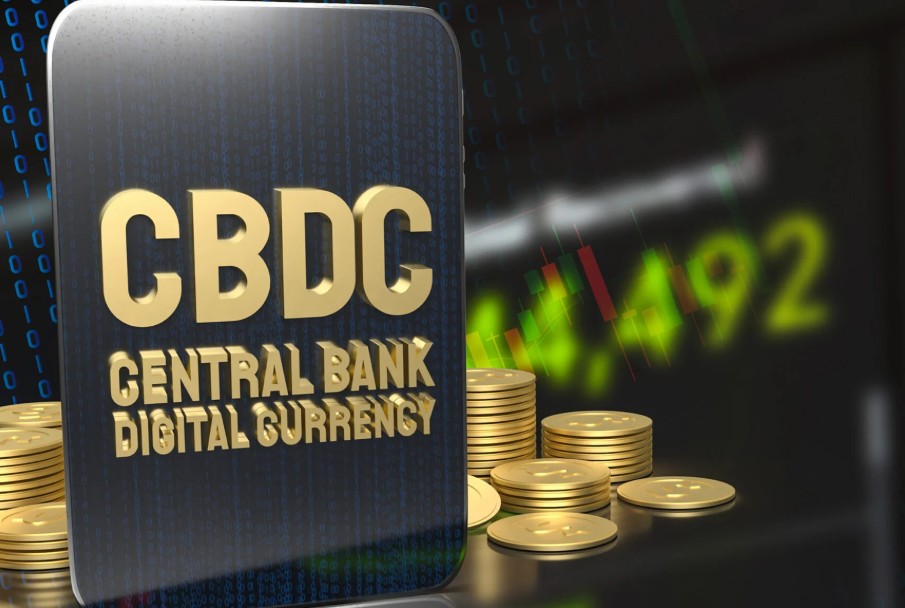
I find it so interesting the debate about CBDCs (Central Bank Digital Currencies), stablecoins (a digital currency backed by real world assets) and cryptocurrencies (a digital currency backed by the decentralised network of everyone). This is the biggest battleground for the future of how we trade and are paid, and the losers appear to be those who resist this.
Who is resisting? Governments.
Desperate to stop the takeover of the world with stablecoins – which appear to be the most preferred way of trading – governments are rushing to issue digital pounds – a Britcoin – and digital euros.
The latest news on Britcoin came from the Bank of England the other day:
A digital pound would be like a digital form of cash – a banknote for the digital era. Like banknotes, it would be issued directly by the Bank of England. You could hold your digital pounds in a digital wallet and spend them in shops or online.
The Bank of England
The European Central Bank is saying something similar:
A digital euro would be a digital form of cash, issued by the central bank and available to everyone in the euro area.
The European Central Bank
What gets me is why no-one is asking why we need CBDCs when we have stablecoins and cryptocurrencies. State-backed digital currencies are no longer relevant. We have democratised currencies that give people choice. Who needs the State?
Interestingly, some political parties agree with that sentiment. For example, Nigal Farage’s Reform party have publicly stated that they “will never support the creation of a Central Bank Digital Currency (CBDC). A ‘digital pound’ run directly by the state would hand unprecedented control over our money to the Bank of England and create the very opposite of the open, competitive financial system we need. The future must be built on innovation from the ground up, with private-sector stablecoins properly regulated, not imposed from the top down by a government-mandated currency.”
The bottom-line is we have a friction between state-issued currencies – the dollar, pound, euro, renminbi, yen and more – and digital currencies issued by digital authorities – bitcoin, Ethereum, ripple, USDC, Tether and more. Some are stable and some are just digital currencies the internet of people believe in. You takes your choice.
But then, I say that, and America is leading the way already. The Genius Act (the Guiding and Establishing National Innovation for U.S. Stablecoins Act) has clearly positioned America at the heart of the stablecoin movement. Bearing in mind that corporations don’t necessarily want to trade in state currencies in the future, it has been a leader in moving towards a basket of digital currencies backed by governments, rather than a fiat-issued currency backed by a single government.
- Consumers and businesses are using stablecoins to make real-world purchases and payments at an accelerating pace since the passage of the first US legislation to regulate the cryptocurrency sector (the GENIUS Act).
- Over $10 billion was moved through stablecoins in August for goods, services, and transfers, with business-to-business transfers making up nearly two-thirds of the total at $6.4 billion monthly.
- Companies are using stablecoins to bypass traditional international banking delays, with the ability to earn yield and facilitate faster transfers of capital giving stablecoins an added advantage.
- This growth follows President Donald Trump’s signing of the GENIUS Act into law on July 18, which established federal regulations for stablecoin issuers and requires them to back their tokens with highly liquid assets such as Treasury bills.
That’s the future: a basket of digital currencies. It doesn’t mean just the US dollar. It could be a stablecoin backed by a basket of dollars, yuan, euros, bitcoins and Eth or whatever. Whatever we believe has value for trade and commerce.
I’ve been saying this for years and it just gets me that central banks think CBDC is the way to go when the networked world says no. Oh, “computer says no” … never heard that before.
Chris M Skinner
Chris Skinner is best known as an independent commentator on the financial markets through his blog, TheFinanser.com, as author of the bestselling book Digital Bank, and Chair of the European networking forum the Financial Services Club. He has been voted one of the most influential people in banking by The Financial Brand (as well as one of the best blogs), a FinTech Titan (Next Bank), one of the Fintech Leaders you need to follow (City AM, Deluxe and Jax Finance), as well as one of the Top 40 most influential people in financial technology by the Wall Street Journal's Financial News. To learn more click here...

